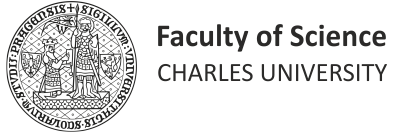There are currently three main areas of research in our group:
Synthesis and application of multiply positively charged compounds

Recently we developed methods for large-scale preparation of multiply (up to 24 charges) positively charged neopentyl and cyclodextrin-based anchors, which have application potential in several areas. These applications would take advantage of a strong electrostatic binding of such molecules to the negatively charged solid support, such as cation exchangers, Nafion (Kasal 2021), silica gel, or zeolites. Further possible topics to explore are:
- Binding chiral modifiers to silica gel and using the obtained solid phase for HPLC chiral separation (in cooperation with the company Chromservis).
- Synthesis of two types of 3D rigid components - the first containing negatively charged anchors, the second positively charged anchors - and use them for construction of Ionic Organic Frameworks. These new porous materials could have interesting properties similar to MOF or COF.
- Functionalizing glass surfaces with the positively charged modifiers bearing hydrophilic, lipophilic, or chromophoric groups and obtaining glass with modified properties.
Synthesis and studying properties of cyclodextrin-drug conjugates
Cyclodextrins are widely used for non-covalent inclusion complexation of drugs to improve their solubility and bioavailability. The covalent binding of drugs to cyclodextrins is much less explored, and the self-inclusion properties are rarely studied. Recently we published (Palágyi 2022) in cooperation with prof. Fourmentin (Dunkerque, France) a study of the controlled release of volatile bioactive aldehydes, and we continue to explore this area further.
Cyclodextrin complexes database - CyclodexDB
This cheminformatics project deals with further improvements to the database of cyclodextrin complexes CyclodexDB, which was developed in cooperation with the company CycloLab.


